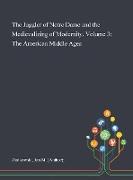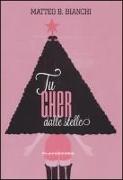- Start
- The Juggler of Notre Dame and the Medievalizing of Modernity. Volume 3
The Juggler of Notre Dame and the Medievalizing of Modernity. Volume 3
Angebote / Angebote:
This ambitious and vivid study in six volumes explores the journey of a single, electrifying story, from its first incarnation in a medieval French poem through its prolific rebirth in the nineteenth and twentieth centuries. The Juggler of Notre Dame tells how an entertainer abandons the world to join a monastery, but is suspected of blasphemy after dancing his devotion before a statue of the Madonna in the crypt, he is saved when the statue, delighted by his skill, miraculously comes to life. Jan Ziolkowski tracks the poem from its medieval roots to its rediscovery in late nineteenth-century Paris, before its translation into English in Britain and the United States. The visual influence of the tale on Gothic revivalism and vice versa in America is carefully documented with lavish and inventive illustrations, and Ziolkowski concludes with an examination of the explosion of interest in The Juggler of Notre Dame in the twentieth century and its place in mass culture today. Volume 3: The American Middle Ages hinges upon two figures influenced by the juggler: Henry Adams, scion of Presidents and distinguished cultural historian whose works contributed to the rise of medievalism in America during the Gilded Age, and Ralph Adams Cram, the architect whose vision of Gothic accounts directly or indirectly for the campuses of West Point, Princeton, Yale, Chicago, Notre Dame, and many other universities across America. The Juggler of Notre Dame and the Medievalizing of Modernity is a rich case study for the reception of the Middle Ages in modernity. Spanning centuries and continents, the medieval period is understood through the lens of its (post)modern reception in Europe and America. Profound connections between the verbal and the visual are illustrated by a rich trove of images, including book illustrations, stained glass, postage stamps, architecture, and Christmas cards. Presented with great clarity and simplicity, Ziolkowski's work is accessible to the general reader, while its many new discoveries will be valuable to academics in such fields and disciplines as medieval studies, medievalism, philology, literary history, art history, folklore, performance studies, and reception studies.This work was published by Saint Philip Street Press pursuant to a Creative Commons license permitting commercial use. All rights not granted by the work's license are retained by the author or authors.
Folgt in ca. 15 Arbeitstagen


